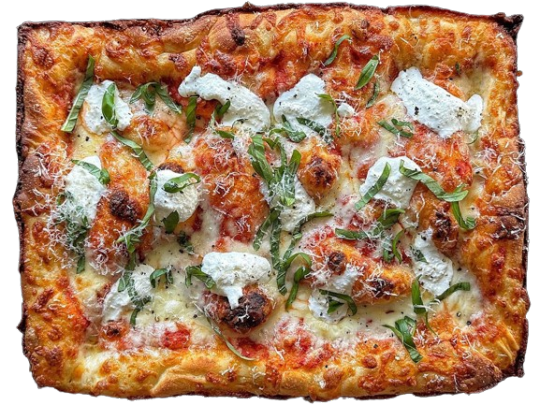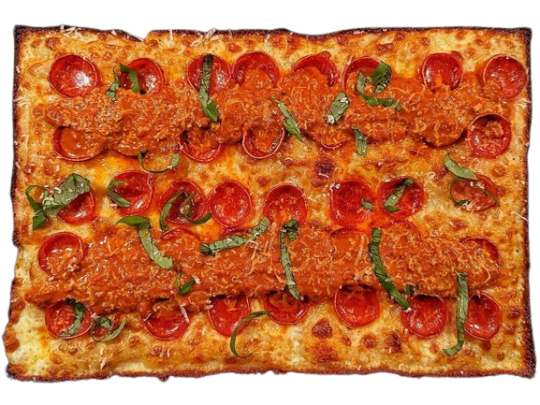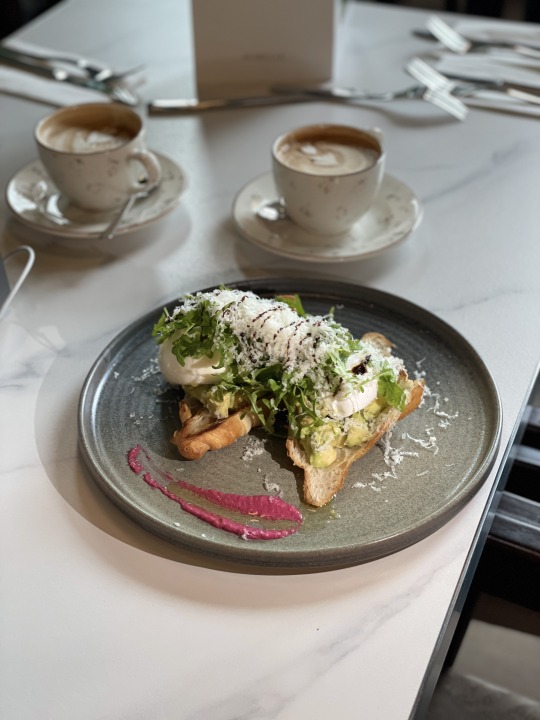#sicilian pesto
Explore tagged Tumblr posts
Text








pizzas by markmakespizza (2)
#markmakespizza#transparent by me#food#instagram#pizza#sicilian pizza#deep dish pizza#pepperoni#pesto oil#vodka sauce#pepperoni pizza#detroit style pizza#mozzarella#cheese#vodka pizza#food pngs#pngs#transparent pngs
2K notes
·
View notes
Note
can we hear ur lilia headcanons... as many as possible i am starving
be careful another what you ask lol, these r some of my fave ones:
( i am and will be ignoring her death. try me hoes)
• that woman can cook, she’ll make you a MEAAANNNN pesto alla trapanese and don’t get me started on traditional sicilian dishes. can’t bake for shit tho.
• she sews most of her clothing herself.
• that woman has had some questionable gigs to rank up some cash, some of those being:
- a history teacher who made some questionable comments about vampires and their uselessness in actual fighting ( “you know kids, vampires are absolutely shit heads, you think they are going to be these big scary people but noooo, terrible at hand in hand combat too” . )
-a hand reader at various kid parties. the amount of times she’s had to tell moms that no, she will not know the gender of their child is astounding ( . )
-a jazz singer at some dingy bar ( she got approached by a big time producer once, but refused to do anything with him after he made some off handed comment about her hair)
• talking about hair, she’s very very proud of her curls, she might not be keen on chemical peels as much ( smth jen later got her on) but if you want to talk hair care? she’s your girl
• after she got kicked out of her place, she moved into agatha’s house and took over the couch. though she will never say it, the couch is the most comfortable thing she has ever slept on ( maybe even the MAAASSIVE bed she must have had in her young days)
• talking about her young days, even though she was not from a royal family, YOU CANNOT TELL ME she wasn’t somehow related to the médici family, i mean LOOK AT HER!!!
• she owns a small artemisia gentilieschi portrait of herself she commissioned while at florence.
• her favorite colour, contrary to popular opinion, is not yellow, but orange
• she sings in the shower, beautifully and loudly so. ( can’t exaggerate the loud part, you can hear her from the whole house, the coven does not complain tho, they acc quite like the everything shower days, it means they get at least 40 minutes of lilia’s singing)
• when drunk, lilia is so chatty and touchy, agatha is not keen on it, but rio loves it, their karaoke duos are astonishing too.
• she laughs the loudest between all of them
• agatha full on laid all her mommy issues in this woman ( now, if that is to say that if she and agatha were to have sex, agatha would call her mommy, or if agatha sees lilia as a motherly figure is up to you)
• the whole of the coven depends on her, if lilia is gone then they all fall apart
• she is a sucker for an aldi, would spend hours grocery shopping if she could.
• wine enthusiast lilia calderu
• polyglot lilia calderu
#your basic queerie#agatha all along#lilia calderu#patti lupone#agatha harkness#agatha x rio#rio vidal#kathryn hahn#laa ( lilia all along)#lilia my beloved#lilia calderu x reader
340 notes
·
View notes
Text



I have now not only cloned Papa Johns cheesesticks but I've improved on them (2:1 mix garlic-infused oil and basil pesto for the sauce). Very proud of dinner tonight. I am going to have to start thinking of new ways to riff on the recipe next time I want a challenge.
[ID: Three images; the top image is a photograph of a deep, square "sicilian style" pizza with pepperoni and mushrooms; it's currently cradled in parchment paper. Below, one image shows slices of the pizza on a plate, displaying their bubbly interior and melted cheese; the other shows a round of cheesy bread, waiting to be sliced; it is flecked green here and there with herbs and pesto.]
127 notes
·
View notes
Note

Creator(me): Hi guys, today I prepared 2 pasta dishes with Sicilian pesto for you. This is one of my favorite dishes😋, and I made it all by myself, even the seasoning.

Gloria(oc): Hey creator, you forgot the cutlery. However, to correct you, I made the seasoning😏, you only made the pasta and you got tired of it straight away😅.
Creator(me): That's not true😠!
Gloria(oc): Yes that's true😆!
Creator(me): THAT'S NOT TRUE😠!
Gloria(oc): YES THAT'S TRUE😆!
Creator(me): *sigh* let's spare you this scene😅, eat the pasta THAT I MADE MYSELF and then tell me if it's good or not.
Gloria(oc): Yes of course, you did it all by yourself😏...
Fantoccio: Woah… It tastes really good!!
Barnaby: It doesn’t matter who made the seasoning, it tastes amazing!!
3 notes
·
View notes
Note
the idiot on that post who doesn't know about cacio e pepe, white pizza, and countless other dishes...
but you know what's funny. they just sound mad europeans managed to also make iconic use of 'their' ingredients. well do better yourself then !
I KNOW like, my point was that what the world considers iconic “Italian” dishes are actually Italian-American or Italian-inspired American (heavy in tomato sauce), while to us Italians, as well as people who are familiar with real Italian cuisine, the dishes which we’d consider iconic are actually older than the Columbian exchange or only use “Old World” ingredients...
I mean, if I had to say what the most iconic (as in the ones that everyone knows and can find outside of their region) dishes which do not contain American ingredients are, I’d say:
Ferratelle, castagnole, focaccia, piadina, arancini/e, Sicilian cassata, Sicilian cannoli, crostoli/frappe/chiacchere/cenci/galani/lattughe*, Neapolitan pastiera, carbonara, gricia, cacio e e pepe, fegato alla veneziana, castagnaccio, panforte, seadas, cornetto, basil pesto, maritozzo, torrone, zeppole, Maraschino cherries, bruschetta, struffoli, granita, gelato, erbazzone, porchetta, cotognata, frutta di Martorana, nacatole, torta della nonna, taralli/tarallini/tarallucci, grissini, savoiardi/pistokkeddos, ciambelline al vino, farinata, fregula, risotto alla milanese, pizza bianca, tortellini in brodo, crostata, babà, baicoli, budino di riso, ciambellone, biscotti del Lagaccio, cantucci, cotoletta alla milanese, biancomangiare, panettone, gubana, canestrelli, brasato al Barolo, brigidini, pasta con le sarde, canederli, ravioli ricotta e spinaci, pere al vino, cannoncino, pane carasau and guttiau, casatiello, gnocchi alla bava, chnéffléné, coda d’aragosta, bomba/bombolone, crema fritta, tigella/crescentina, delizia al limone, frìtołe, gelo di melone, krumiri, mandorlato, malfatti, meringa, necci, saltimbocca alla romana, mostaccioli, pasta di mandorle, ribollita, panelle, pasta e ceci/fagioli/lenticchie/fave, pasticciotto, polenta, risotto alla marinara, torta pasqualina, frisella, focaccia di Recco, agnolotti, gnocco fritto, sbrisolona, zabajone, vitello tonnato, passatelli in brodo, mozzarella in carrozza, amaretti, ciambella, brioscia, plenty of pizze including the original Marinara which is way better than the one people call Marinara today...
*No campanilismi here 🇮🇹
While I’d say that the most iconic Italian dishes which do contain American ingredients are:
Gnocchi di patate, graffa, crocchè (potato); pizza Margherita, pizza alla marinara, pappa al pomodoro, lasagne alla bolognese, lasagne alla napoletana, parmigiana di melanzane, insalata caprese, sfincione, timballo, sun-dried tomatoes, caponata (tomato); tortelli di zucca, gnocchi di zucca (pumpkin); ‘nduja, pasta all’arrabbiata (hot chilies); tiramisù, gianduja, baci di dama, salame di cioccolato, cuneesi al rhum, zuppa inglese, setteveli, zuccotto, Modica chocolate (cocoa); corn polenta, pan meino (maize); pandoro, panna cotta (vanilla); peperonata (bell peppers); zucchine alla scapece, pasta alla nerano (courgettes).
So yes, while the Columbian exchange did influence Italian cuisine, either by leading to the evolution of pre-existing dishes (EG.: pangiallo was invented over 2000 years ago and nowadays it’s not uncommon to see people add dark chocolate to the recipe; the original pizza alla marinara did not contain tomato sauce and was made with anchovies, capers, garlic, black Gaeta olives, oregano and olive oil - all of which are very Mediterranean ingredients) or to the creation of new ones, but claiming that New World ingredients-based dishes are all there is to Italian cuisine, or that its most iconic dishes are made with them is factually wrong and the reason why this stereotype exists in the first place is due to Italian-American culture/US stereotypes of Italy and Italians being passed off as authentic Italian and its spread outside of the US is a direct result of US cultural imperialism.
I also find it ironic how they all conveniently ignore that Asian, African and other European cuisines outside of Italy’s also use American ingredients... I have yet to see someone claim that shahi paneer is not Indian or that paprikás csirke is not Hungarian while I have seen plenty of Americans claim that pizza Margherita (which they believe is the only kind of pizza there is) is actually American just because tomatoes are not native to Italy.
3 notes
·
View notes
Text
(A bit more than 5, but the additional ingredients are things likely to be in your house already like garlic, butter, oil, etc)
Pasta Carbonara - Spaghetti, eggs, parm, bacon (plus garlic, butter, salt/pepper) - Filling, delicious, and pretty darn easy.
Spaghetti with Sicilian Pesto - Spaghetti, tomatoes, parm, pine nuts, fresh basil, ricotta (plus garlic, olive oil, salt/pepper) - First recipe in the video; easiest meal I've ever made. Blend everything together, heat, and eat. I even swapped out cream cheese for the ricotta once because it's what I had, and it still turned out fantastic.
Mozz and Basil Stuffed Tomatoes - Tomatoes, mozz, parm, fresh basil, bread/breadcrumbs (plus butter, garlic, salt/pepper) - So good and super easy. Can even be made ahead of time and cooked later.
Raspberry Rhubarb Clafoutis - Flour, milk, eggs, sugar, berries (plus butter, salt) - Listed as a dessert, but honestly a great breakfast/brunch option. The rhubarb/raspberry combo is fantastic, but if you're looking to save on time, skip the rhubarb and just use whatever berries you have on hand. Another "just blend everything together and cook" recipe.
Do any of u have decent recipes that are like 5 ingredients (not including spices) and take 45 mins or less to prepare i gotta stop eating sandwiches for dinner
#food#these are staples when i'm in charge of making food lol#and an overnight french toast bake but it definitely exceeds the ingredient and time restraints lol#so good though it always goes quick
120K notes
·
View notes
Text
A Culinary Journey Through Italy
For cheap and best Travel Bookings - https://travelinternationals.com/
Italy, a land renowned for its rich culture and timeless charm, offers an unparalleled culinary adventure that beckons food enthusiasts from around the world. From the rolling hills of Tuscany to the bustling streets of Naples, Italian cuisine reflects its regional diversity and deep-rooted traditions.
The journey begins in the north, where the robust flavors of creamy risottos and hearty polentas dominate the culinary scene. Piedmont is the home of truffles and Barolo wine, while Emilia-Romagna boasts the origins of Parmesan cheese and balsamic vinegar. These delicacies are a testament to Italy’s devotion to high-quality, locally sourced ingredients.
As we travel south, the cuisine evolves, embracing vibrant Mediterranean flavors. Tuscany invites you to indulge in a bowl of Ribollita, a comforting bread and vegetable soup, or a perfectly grilled Florentine steak paired with Chianti wine. In contrast, the coastal regions, such as Liguria, delight visitors with fresh seafood dishes and the iconic pesto alla Genovese.
Central Italy introduces you to the decadent pasta dishes of Rome, like the creamy Carbonara or the tangy Amatriciana. Lazio’s culinary offerings are simple yet bold, highlighting the region’s love for olive oil, garlic, and tomatoes.
No culinary journey through Italy would be complete without visiting Naples, the birthplace of pizza. Neapolitan pizza, with its thin crust and fresh toppings, captures the essence of Italian simplicity and excellence. In the nearby Amalfi Coast, indulge in the zesty delight of limoncello, a refreshing lemon liqueur.
Heading to the islands of Sicily and Sardinia, the cuisine takes on an exotic twist, influenced by centuries of Greek, Arab, and Spanish rule. Sicilian cannoli, arancini, and sweet almond pastries are a feast for the senses, while Sardinia’s seafood dishes and roasted meats reflect its rustic charm.
Every meal in Italy is a celebration, a moment to savor and connect with loved ones. Whether you're dining in a Michelin-starred restaurant or a humble trattoria, the flavors of Italy tell stories of passion, tradition, and innovation.
Embark on your own culinary journey through Italy, and let each bite transport you to a land of timeless flavors and unforgettable experiences.
#Italy#CulinaryJourney#TravelItaly#ItalianCuisine#FoodLovers#ItalyTravel#MediterraneanFood#ExploreItaly#GourmetTravel#CheapTravel
0 notes
Text
youtube
If I had to choose one pizza I just can't live without, it's this.
They start by layering shredded mozzarella cheese on their thick Sicilian dough, then come beautiful lines of pesto sauce, marinara sauce and vodka sauce.
Then comes a sprinkle of parmezan, topped with thick-cut pepperoni.
It gets slid into the pizza oven until it looks like this.
This is the crispy trio pepperoni square pie from Crispy Pizza in Brooklyn NY.
The dough is thick, fluffy and crispy all at the same time. The pepperoni is charred with a perfect amount of oil and their sauces are delicious.
Follow us for more New York City food spots.
#second conditional#osascomp#trolleng#trolledu#get done#passive with get#passive#passive voice#passive get#mixed conditional#present simple#Youtube
0 notes
Text
Aurelia Aylesbury: A Journey Through Authentic Italian Flavors
Located in the heart of Aylesbury, Aurelia Restaurant & Bar offers a menu that combines the rich heritage of Italian cuisine with modern dining. With dishes prepared using high-quality, carefully sourced ingredients, Aurelia promises an unforgettable culinary experience for everyone, from pasta enthusiasts to pizza lovers and those craving indulgent risottos and mains.
Start with Irresistible Antipasti
Aurelia’s Antipasti menu sets the stage for an exquisite meal. Guests can enjoy a range of starters, including:
Arancini: Sicilian rice balls stuffed with ham and mozzarella, fried to golden perfection.
Bruschetta: Toasted sourdough topped with fresh tomatoes, garlic, and basil, drizzled with extra virgin olive oil.
Carpaccio di Manzo: Thinly sliced beef garnished with rocket, parmesan, and a touch of balsamic glaze.
For sharing, the Antipasto Misto offers a generous board showcasing regional Italian flavors, perfect for two.
Dive into Italian Classics
The Primi Piatti section is a haven for pasta lovers, featuring handcrafted dishes such as:
Spaghetti alla Carbonara: A creamy and flavorful classic made with pork cheek and pecorino cheese.
Gnocchi alla Sorrentina: Soft, pillowy gnocchi baked with tomato sauce and burrata cheese.
Linguine allo Scoglio: A seafood lover’s dream with prawns, mussels, and squid in a cherry tomato sauce.
For risotto enthusiasts, options like Risotto ai Funghi (mushroom risotto) and Risotto alla Marinara (seafood risotto) deliver both texture and taste.
Signature Neapolitan Pizzas
Aurelia’s pizzas are hand-stretched to order, featuring fresh ingredients and baked to perfection. Standout options include:
5 Formaggi: A medley of Italian cheeses, including Grana Padano and Gorgonzola, for a rich, savory experience.
Mortadella e Pistacchio: A unique combination of mortadella, burrata cheese, pistachio pesto, and crumble.
Aurelia: A signature pizza topped with Parma ham or smoked salmon, Grana Padano, and fresh rocket.
Each pizza reflects the rustic yet refined flavors of Italian cooking.
Savor Refined Mains
For those seeking hearty dishes, the Secondi Piatti offers options like:
Osso Buco: Braised veal shank with a tomato-based sauce, slow-cooked to tender perfection.
Costole Corte: Beef ribs slow-cooked in red wine sauce for a rich and decadent flavor.
Lombo di Agnello: Lamb loin paired with rosemary, balsamic glaze, and pine nuts for a Mediterranean touch.
Complement Your Meal
Aurelia boasts a thoughtfully curated wine and drinks menu, featuring:
Italian Wines: From crisp whites like Gavi to bold reds like Valpolicella Ripasso.
Signature Cocktails: Try "La Dolce Vita," a blend of Calvados and lavender syrup, or "Nuvola Verde," a refreshing mix of gin, honey syrup, and matcha.
Mocktails: Non-alcoholic options like the tropical Fiamma Tropicana or the refreshing Cucumber Non-Jito add flair to any meal.
Experience Aurelia Aylesbury
For an authentic Italian dining experience in a warm and welcoming atmosphere, Aurelia Aylesbury is the perfect choice. Whether it’s a casual lunch, a romantic dinner, or a celebration with friends, Aurelia offers a menu that satisfies every craving.
📍Address: Unit 7, The Exchange, Aylesbury, Aylesbury HP20 1UR, United Kingdom
Website: https://theaurelia.co.uk/

0 notes
Text
Exploring Regional Dishes at the Best Italian Restaurants Around
When it comes to food, nothing quite compares to the diversity and richness of Italian cuisine. From the savoury pasta dishes of Tuscany to the creamy risottos of Northern Italy, there’s something magical about how each region of Italy brings its unique flavours to the table. If you’re craving an authentic Italian experience, Adelaide has some fantastic spots to indulge in Italy’s finest flavours without leaving the city. In this post, we’ll explore some of the regional Italian dishes you should try and where to find them at the best Italian restaurant in Adelaide has to offer.

The Heart of Italian Cuisine: A Journey Through Regions
Italian food is not just one cooking style—it’s a collection of regional specialties, each with its flair and tradition. From the North to the South, Italy's culinary landscape offers a variety of tastes:
Northern Italian Specialties
Northern Italy is known for its rich, hearty dishes, often featuring butter, cream, and cheeses. Popular dishes from this region include:
Risotto is a creamy rice dish often flavoured with saffron (Risotto alla Milanese) or mushrooms (Risotto ai Funghi).
Polenta: A cornmeal dish served creamy or baked into crispy squares.
Gnocchi: Potato dumplings served with various sauces, like gorgonzola or pesto.
These Northern classics are perfect for colder months or whenever you want something genuinely comforting. Many of theItalian restaurants Adelaide offer these dishes, giving locals and travellers alike an authentic taste of Northern Italy.
Central Italian Cuisine
Moving down to Central Italy, the flavours become more tomato-forward and hearty, emphasising fresh, local ingredients. Here are a few standout dishes from this region:
Pappardelle al Cinghiale: Thick, wide ribbons of pasta served with a rich wild boar ragu, commonly found in Tuscany.
Porchetta: A slow-roasted pork roll stuffed with herbs and spices, a staple at many Roman gatherings.
Bruschetta: A humble yet delicious appetiser made of toasted bread, rubbed with garlic, and topped with fresh tomatoes and olive oil.
A great example of this cooking style can be found at Adelaide's best Italian restaurant. Whether you're a local or visiting, these central Italian dishes are a must-try!
Southern Italian Flavors
Southern Italy brings vibrant, bold, and sometimes spicy flavours. Olive oil replaces butter, and seafood often takes centre stage. Some iconic dishes from the South include:
Pizza Margherita: This simple pizza, which originated in Naples, is made with fresh tomatoes, mozzarella, and basil.
Pasta alla Norma: A classic Sicilian dish featuring eggplant, tomatoes, and ricotta cheese.
Arancini: Fried rice balls stuffed with ragù, cheese, or peas, perfect for a quick bite or an appetiser.
The Authentic Italian Experience in Adelaide
Adelaide has a vibrant food scene, and Italian cuisine is a big part. The best Italian restaurant Adelaide has to offer showcases the diversity of Italy’s regions, with menus that range from the hearty fare of Northern Italy to the zesty, seafood-rich dishes of the South. Whether you’re a local food lover or a travel blogger looking for authentic culinary experiences, Adelaide’s Italian restaurants will surely impress.
“Italian food is all about sharing. When you sit at an Italian restaurant, you’re not just eating—you’re part of the family.”
Local Favorites and Hidden Gems
For those looking to dive deep into authentic Italian cuisine, exploring some of Adelaide’s hidden gems is worth exploring. These smaller, family-owned restaurants offer a taste of Italy you won’t find anywhere else. From homemade pasta to freshly baked focaccia, the best Italian restaurant Adelaide has tucked away might surprise you with its regional specialties and heartwarming atmosphere.
Conclusion
Italian cuisine is more than just pizza and pasta—it celebrates fresh ingredients, time-honoured techniques, and regional diversity. If you’re eager to explore the best of Italian food, hopping on a plane to Italy is unnecessary. Head to the Italian restaurant in Adelaide, and enjoy an unforgettable journey through Italy’s most beloved flavours. Whether you’re a foodie local or a travel blogger seeking authentic experiences, Adelaide’s Italian dining scene has something special for you. Buon appetito!
Source From : Exploring Regional Dishes at the Best Italian Restaurants Around
0 notes
Text
Discover the Flavors of Sicily: A Guide to Unforgettable Sicily Food Tours
Sicily is a paradise for food lovers, where culinary traditions and cultural heritage blend seamlessly to create a unique gastronomic experience. For those looking to immerse themselves in the authentic flavors of this Mediterranean island, Sicily food tours are the perfect way to savor every bite while exploring the picturesque landscapes and historic towns. Sicily Food Tours Whether you're an adventurous foodie or simply a traveler seeking to deepen your connection with Sicilian culture, these tours offer an unforgettable journey through the island's diverse and delicious cuisine.
What to Expect on a Sicily Food Tour
A well-curated food tour in Sicily goes beyond just tasting local dishes—it’s about understanding the history and passion behind each ingredient. From bustling local markets to family-owned farms, and traditional bakeries to award-winning wineries, you’ll get an insider’s view of Sicily’s vibrant food scene. Expect to sample freshly made pasta, seafood caught from the island’s pristine waters, and signature Sicilian sweets like cannoli and cassata.
You’ll also have the chance to visit local vineyards, where you can sip on world-renowned wines like Nero d'Avola and Grillo, or olive groves that produce some of the purest extra virgin olive oil in the world. Each stop provides an opportunity to meet local artisans, chefs, and winemakers who are passionate about preserving the island’s culinary heritage.
Highlights of Sicily's Culinary Regions
Palermo: The bustling capital is a must-visit for street food enthusiasts. Here, you’ll find traditional delights like arancini (fried rice balls), panelle (chickpea fritters), and sfincione (a thick, spongy pizza). A tour through Palermo’s vibrant markets such as Vucciria or Ballarò is a feast for the senses, filled with colorful stalls offering fresh produce, seafood, and spices.
Trapani and Marsala: Known for salt pans and high-quality seafood, the Trapani region is also famous for its pesto alla trapanese, a unique twist on the classic pesto made with almonds and tomatoes. Marsala, on the other hand, is celebrated for its fortified wine, perfect for pairing with local cheeses and desserts.
Ragusa and Modica: These baroque towns are not only architectural gems but also culinary hotspots. Modica is known for its ancient chocolate-making tradition, where chocolate is crafted using centuries-old methods without additional fats or dairy. Ragusa, with its rich dairy heritage, offers mouthwatering cheeses such as Ragusano DOP.
Etna and Catania: The fertile volcanic soil around Mount Etna produces some of Sicily’s most exceptional wines, honey, and pistachios. A food tour here would be incomplete without a visit to a local vineyard, where you can taste Etna DOC wines against the backdrop of the majestic volcano.
Why Choose a Sicily Food Tour?
Sicily food tours provide more than just delicious memories—they offer a chance to connect with the island’s rich cultural identity. By exploring regional dishes and local specialties, you’ll gain a deeper appreciation for Sicily’s complex history, influenced by Greek, Arab, Norman, and Spanish rule over centuries. Whether you’re sampling pasta alla Norma in Catania or savoring caponata along the coast, each bite tells a story of resilience, creativity, and community.
For those looking to elevate their culinary adventure, consider booking a food and wine tour through Go Inside Sicily’s Food and Wine Tours. Sicily Food Tours These thoughtfully designed tours ensure that you experience the best of Sicily’s cuisine, guided by local experts who are passionate about sharing the island’s hidden treasures.
From the markets of Palermo to the vineyards of Etna, let Sicily's diverse culinary landscape surprise and delight you. Enjoy an authentic taste of Sicily that you won’t find anywhere else!
0 notes
Text


Pizza for dinner! Come and get a slice of mushroom and pesto pizza!
I bought pizza flour from King Arthur Baking with a Christmas gift card, and subbing in half pizza flour in the recipe made such a difference in the crust dough. Super elastic and easy to stretch. On the round pizza I also used the leftover sauce from the stracotto instead of pizza sauce, so we'll see how that tastes soon.
[ID,: two photos of home baked pizza; on the left, a square "Sicilian" style pizza with mushrooms and pesto as topping. On the right, a round pizza in a cast iron pan is also topped with mushrooms and has hints of green where the pesto is under the cheese.]
95 notes
·
View notes
Text
The Charm of Italian Trattorias: Cozy Eateries with Authentic Fare by Jen Royle
Italian cuisine is renowned worldwide for its rich flavors, fresh ingredients, and hearty dishes. At the heart of this culinary tradition are trattorias – cozy eateries that offer a warm and inviting atmosphere paired with authentic Italian fare. These charming establishments serve as gathering places for locals and visitors alike, where the spirit of Italian hospitality shines through in every meal. In this blog, we explore the allure of Italian trattorias, from their traditional recipes passed down through generations to the convivial ambiance that keeps patrons coming back for more.
Timeless Recipes: A Taste of Tradition
Italian trattorias are revered for their commitment to preserving culinary traditions and recipes that have been cherished for centuries. From classic pasta dishes like spaghetti carbonara and fettuccine alfredo to hearty meat and seafood entrees, trattoria menus showcase a wide array of dishes that reflect the diversity of Italian regional cuisine. Jen Royle
Industry experts like Jen Royle mention that these timeless recipes are often prepared using locally sourced ingredients, emphasizing freshness and seasonality. Whether it's ripe tomatoes in a vibrant marinara sauce or fragrant basil in a pesto pasta, trattoria chefs prioritize quality ingredients to ensure that each dish bursts with flavor and authenticity.
Rustic Charm: A Cozy Dining Experience
Step inside an Italian trattoria, and you'll be greeted by an ambiance that exudes rustic charm and old-world elegance as appreciated by industry leaders such as Jen Royle. Exposed brick walls, wooden tables adorned with checkered tablecloths, and flickering candlelight create an inviting atmosphere reminiscent of a traditional Italian home.
The conviviality of Italian trattorias extends beyond the decor, with friendly staff and lively conversations adding to the warmth of the dining experience. Whether you're dining with family, friends, or solo, trattorias offer a welcoming environment where everyone feels like part of the family.
Regional Specialties: Culinary Diversity
One of the most captivating aspects of Italian cuisine is its incredible diversity, shaped by the distinct culinary traditions of each region. Restaurant owners including Jen Royle convey that trattorias often highlight regional specialties on their menus, allowing diners to embark on a culinary journey across Italy without ever leaving their table.
From the hearty risotto dishes of Lombardy to the seafood delights of the Amalfi Coast, trattorias offer a taste of Italy's diverse culinary landscape. Whether you're craving Tuscan ribollita, Sicilian arancini, or Venetian seafood risotto, trattorias provide an opportunity to explore the flavors of Italy from north to south. TABLE Jen Royle
Fresh and Seasonal Ingredients: Culinary Excellence
Italian cuisine is celebrated for its emphasis on fresh, seasonal ingredients, and trattorias are no exception as highlighted by industry experts like Jen Royle. Chefs at these eateries prioritize locally sourced produce, meats, and seafood, ensuring that each dish is bursting with flavor and vitality.
By harnessing the bounty of the Italian countryside, trattorias showcase the best that each season has to offer. From vibrant summer salads to hearty winter stews, the ever-changing menu at trattorias reflects the rhythm of nature and the culinary creativity of Italian chefs.
Family Traditions: A Labor of Love
Many Italian trattorias are family-owned and operated, with recipes passed down through generations and culinary traditions upheld with pride. Behind every dish served at a trattoria is a story – a family recipe perfected over years of trial and error, a secret ingredient handed down from grandmother to granddaughter.
This sense of familial warmth and tradition infuses every aspect of the dining experience at trattorias, from the heartfelt welcome at the door to the lovingly prepared meals served at the table. For diners, dining at a trattoria is not just about enjoying a delicious meal; it's about connecting with the rich tapestry of Italian culture and history.
Community Gathering Places: The Heart of Italian Culture
In Italy, trattorias serve as more than just places to eat; they are vibrant community gathering places where neighbors come together to share stories, celebrate milestones, and forge lasting connections. From lively lunches with colleagues to leisurely dinners with loved ones, trattorias provide a welcoming space for people from all walks of life to come together and enjoy good food and good company.
This sense of community is central to the charm of Italian trattorias, fostering a spirit of camaraderie and belonging that transcends cultural boundaries. Whether you're a seasoned traveler or a first-time visitor, dining at a trattoria offers a glimpse into the heart and soul of Italian culture – a warm embrace that invites you to savor the simple pleasures of life.
Italian trattorias hold a special place in the hearts of both locals and visitors, offering a taste of Italy's rich culinary heritage in a warm and welcoming setting. With their timeless recipes, rustic charm, and commitment to culinary excellence as noted by industry leaders such as Jen Royle, trattorias embody the essence of Italian culture and hospitality. As you savor each bite of pasta, sip of wine, and moment of laughter shared with friends and family, you become part of a tradition that has been cherished for generations. In an increasingly fast-paced world, Italian trattorias serve as sanctuaries of simplicity and authenticity, reminding us to slow down, savor the moment, and appreciate the joys of good food and good company. Whether you're indulging in a leisurely meal or grabbing a quick bite on the go, trattorias offer a taste of la dolce vita – the sweet life – where every meal is a celebration of the culinary delights and cultural treasures of Italy.
So, the next time you find yourself craving the comforting embrace of Italian cuisine, seek out a trattoria in your neighborhood or embark on a culinary adventure in the streets of Italy. Whether you're dining on a bustling piazza in Rome, a quaint cobblestone alley in Florence, or a charming neighborhood trattoria in your hometown, you'll discover that the allure of Italian trattorias transcends borders and brings people together in a shared love of food, family, and fellowship.
0 notes
Text
tonight its gonna be sicilian pesto pasta and a floral punch. rn im soaking cashews in warm water, waiting for my order of cherry tomatoes and infusing leftover gin with lavender
1 note
·
View note
Text
From Screen to Stovetop: Recipes I'm Bookmarking
This list represents my curated collection of recipes earmarked for future culinary endeavors. Have you had the pleasure of trying any of these recipes yet? I'd love to hear your thoughts and experiences, so don't hesitate to share your feedback!
Bon Appetit - Best pesto
Weston Table - Fig bruschetta with honey gorgonzola butter
Weston Table - Fig and prosciutto flatbread
Jamie Oliver - Pasta with aubergine & tomato sauce
Jamie Oliver - Pasta and green olives
Jamie Oliver - Greek feta tray bake
Jamie Oliver - Crispy-bottomed steamed dumplings
Air fryer Buffalo Cauliflower
Jamie Oliver - Classic ratatouille
Jamie Oliver - Leek & potato soup
Jamie Oliver - Sicilian spaghetti alla Norma
Jamie Oliver - Baked eggs in popped beans
Jamie Oliver - Pasta peperonata
The Modern Proper - Spicy roasted red pepper bucatini with whipped feta
Weston Table - Acorn squash, ricotta & maple apple slaw
Jamie Oliver - Roasted carrot salad
Bon Appétit - Roasted butternut with herb oil and goat cheese
Bon Appétit - Chicken-lentil soup with jammy onions
BBC Food - Chicken and vegetable balti
BBC Food - Chickpea traybake pittas
Jamie Oliver - Fragrant squash curry
0 notes
Text
thanks for the tag pookie <33
-i have a stupid dog his name is scout and he is dumb but he's cute sometimes so its okay. hes unintelligent but i love him
-pasta with pesto and chicken
-two languages!!! italiano e inglese (im trying to learn sicilian as well)
-born and raised in sicily! moved to the US when i was 8
-im proud that i finally got the courage to start posting, and have made so many wonderful friends from it <3
tagging @ellamenop @lunar-solarsystem @thatonesmartkidfromschool @izel-reblogs @platypus-with-interests @ananxiousgenz @eclipsecatsstuff @seven-winged-liar @no-tengo-ojos @nonbinarytoast
Tag game because I want to know you better !
-Do you have a pet ?
-Comfort food ?
-How many languages do you speak ?
- Random fact about yourself
-Something you’re proud of
To begin this little tag game, I’ll tag @ebony-reine-vibes @freddie-77-ao3 @newobsessioneveryweek @thehaikuman and @miraclesnail
I hope the questions aren’t boring and love you all 😘
3K notes
·
View notes